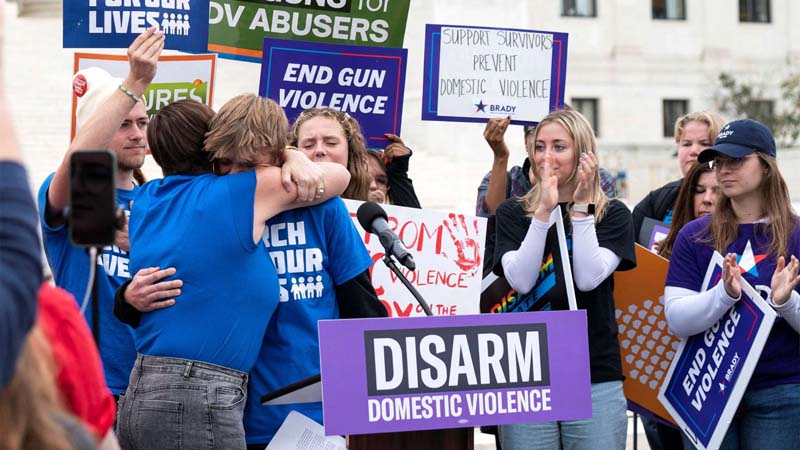The Supreme Court of the United States scrutinized a critical case on Tuesday that questions the constitutionality of a federal statute forbidding those under restraining orders from owning firearms.
At the heart of the legal battle is Zachey Rahimi’s case, a Texas resident who assaulted his partner in a parking lot incident captured in 2019. The encounter, which escalated when Rahimi discharged his weapon upon realizing a witness’s presence, is detailed in the United States v. Rahimi.
After the violent encounter, Rahimi’s partner, who also shares a child with him, obtained a protective order against him. Under current federal legislation, such an order prohibits Rahimi from firearm possession. Defying the order, Rahimi was involved in multiple incidents involving gun use, as reported by SCOTUSblog.
Local Texas authorities linked Rahimi to several shootings and discovered firearms at his residence while serving a warrant, leading to federal indictments.
Challenging the federal ban as unconstitutional, Rahimi’s case was initially dismissed by lower courts but gained traction in the appellate circuit following the Supreme Court’s expansive reading of the Second Amendment in the New York State Pistol and Rifle Association v. Bruen.
Justice Clarence Thomas’s “historical analog” framework in the Bruen decision, which supports gun rights, was a focal point during the Supreme Court’s hearings. Solicitor General Elizabeth Preloger defended the federal law, suggesting that it aligns with the permissible scope of disarming citizens who pose a risk.
Justice Katanji Brown Jackson highlighted the complexities of the historical analog test, underscoring the evolving context of legislation against modern societal challenges, such as the tragic shooting in Maine.
Rahimi’s defense, led by attorney Matthew Wright, contested the federal law, arguing it exceeds Congressional authority and infringes upon Second Amendment liberties.
A ruling in Rahimi’s favor could significantly expand gun rights, potentially undermining protections against domestic violence. Advocacy group Brady United reported a troubling rise in firearm-related intimate partner homicides, with a majority perpetrated by men.
Attorney generals, including Raúl Torrez, who support the Justice Department, are watching the case closely, emphasizing the importance of existing laws to protect communities from domestic abuse threats.
Brady United’s legal officer, Douglas Letter, called for the High Court to uphold the challenged law, describing it as crucial for safeguarding vulnerable individuals from further harm.



